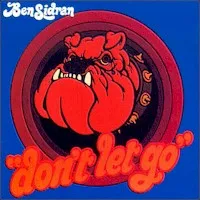Styles: Saxophone Jazz
Year: 2010
File: MP3@320K/s
Time: 59:51
Size: 156,2 MB
Art: Front
( 9:26) 1. Sentimental Journey
( 5:25) 2. I'll Be Seeing You
( 4:47) 3. My Man
( 5:06) 4. Crazy Rhythm
( 8:55) 5. Speak Low
( 8:00) 6. In a Sentimental Mood
( 7:56) 7. Golden Earrings
(10:12) 8. Here's That Rainy Day
A Sentimental Journey
Year: 2010
File: MP3@320K/s
Time: 59:51
Size: 156,2 MB
Art: Front
( 9:26) 1. Sentimental Journey
( 5:25) 2. I'll Be Seeing You
( 4:47) 3. My Man
( 5:06) 4. Crazy Rhythm
( 8:55) 5. Speak Low
( 8:00) 6. In a Sentimental Mood
( 7:56) 7. Golden Earrings
(10:12) 8. Here's That Rainy Day
Saxophonist Tim Warfield has been associated with the Wynton Marsalis/Lincoln Center post-Young Lions of mainstream jazz for quite some time. With A Sentimental Journey, he might be making inroads to breaking that mold with a collection of standards fortified by the B-3 organ of Pat Bianchi and given different shadings or flavors. With trumpeter Terrell Stafford as second-in-command, Warfield takes the effortless lead on most of these chestnuts, with primarily his tenor sax and a little soprano. There are three short but sweet songs, including a quaint tango/march version of "My Man" with Warfield playing a Sidney Bechet-toned soprano. The rest are long and involved jam-type workouts as Warfield's tenor is assertive and up-front. A slow, slinky, lugubrious take on "Sentimental Journey" and similarly steamy approach to the Brazilian-tinged "Speak Low" emphasize what is mostly a program of easy swing, ballads, blues, and bossas, with "Crazy Rhythm" the energetic exception. Drummer Byron "Wookie" Landham is the lone rhythmic instrument, and unlike his groove-oriented work with Joey DeFrancesco, he tones down the proceedings with taste and grace. Warfield is not so much distinctive as tasteful, not shattering barriers but playing enjoyable, straight-laced music. ~ Michael G.Nastos http://www.allmusic.com/album/a-sentimental-journey-mw0001987889
Personnel: Tim Warfield (soprano saxophone, tenor saxophone); Terell Stafford (trumpet, flugelhorn); Pat Bianchi (Hammond b-3 organ); Byron Landham (drums).
Personnel: Tim Warfield (soprano saxophone, tenor saxophone); Terell Stafford (trumpet, flugelhorn); Pat Bianchi (Hammond b-3 organ); Byron Landham (drums).
A Sentimental Journey




















